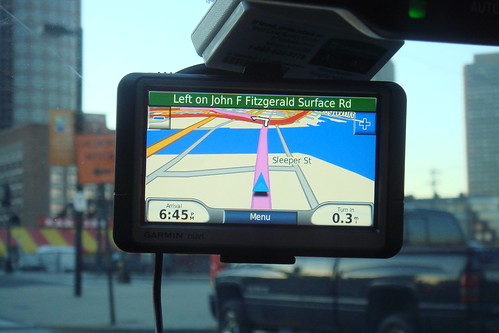Study says GPS-systems with real-time traffic info can save a lot of time
(Source: NAVTEQ via Autoblog)
According to a new study, GPS-systems with real-time traffic info can save American drivers four days a year of being stuck in grizzly traffic snarls. As promising as it sounds, this particular study should be viewed with a little bit of skepticism because it was sponsored by navigation systems data-provider NAVTEQ. Here are some of the study details (as published in the NavTeq press release).
The results are from a three pronged studies conducted in two metropolitan areas of Germany – Dusseldorf and Munich — which evaluated drivers without a navigation system, drivers with a navigation system, and drivers with a navigation system that included real-time traffic. Previous studies in this field focused more on “getting lost” scenarios versus the benefits to drivers of navigation system use during the course of their normal driving habits.
The study revealed that the drivers using traffic enabled navigation devices experienced dramatic time savings, spending 18% less time driving on an average trip versus drivers without navigation. If applied over the course of a year, a driver who does not currently use a navigation device would save themselves 4 days of driving each year if they had a traffic-enabled navigation system. Additionally, the findings show that drivers with real-time traffic experience reductions in distance traveled as well as increase fuel efficiency which would lead to a decrease in CO2 emissions per driver of .79 metric tons, or 21% less than a driver without a navigation system.
These results not only point to the positive impact on German drivers, they can be projected to other countries as well, for example*:
- UK drivers with traffic enabled navigation would save 2.5 days per year and drop their CO2 emissions by 20%
- US drivers with traffic enabled navigation would save 4 days per year and lower their CO2 emissions by 21%
Click here to read the entire press release.


